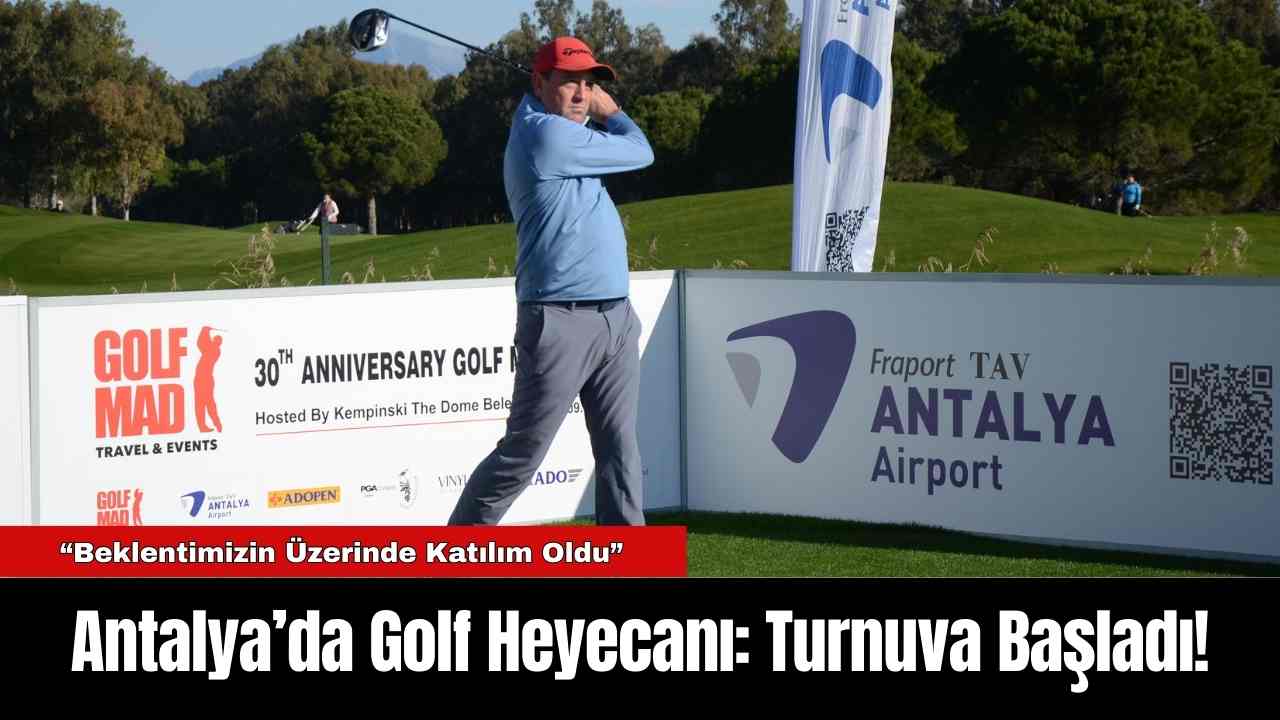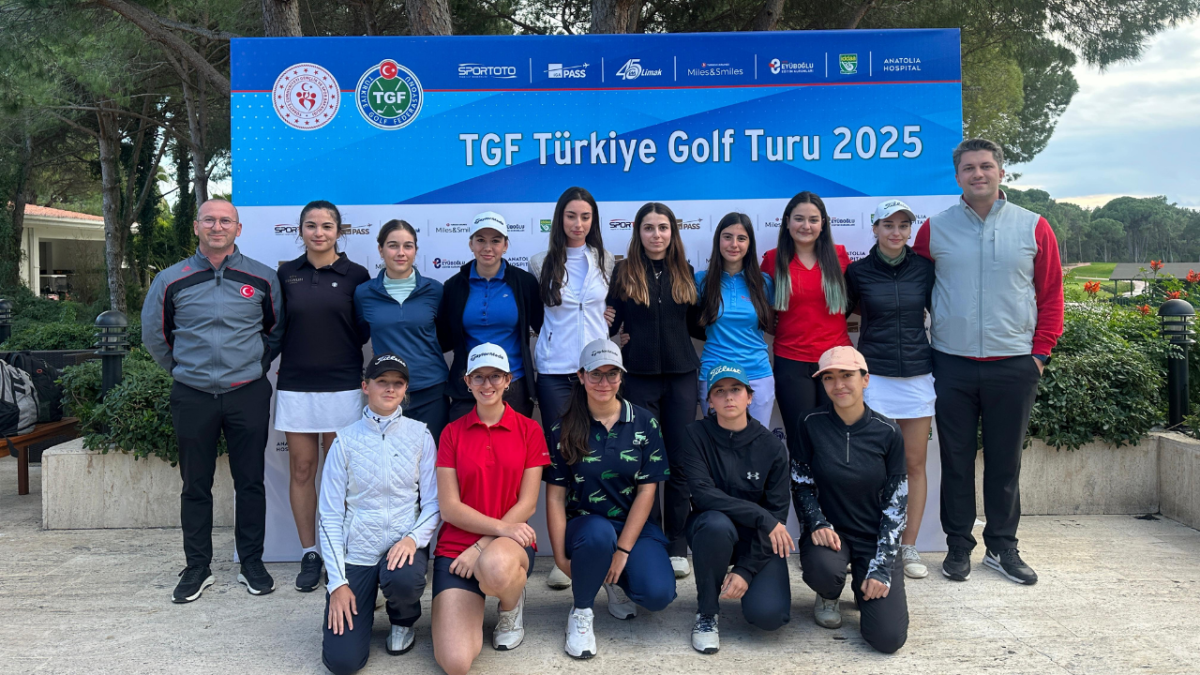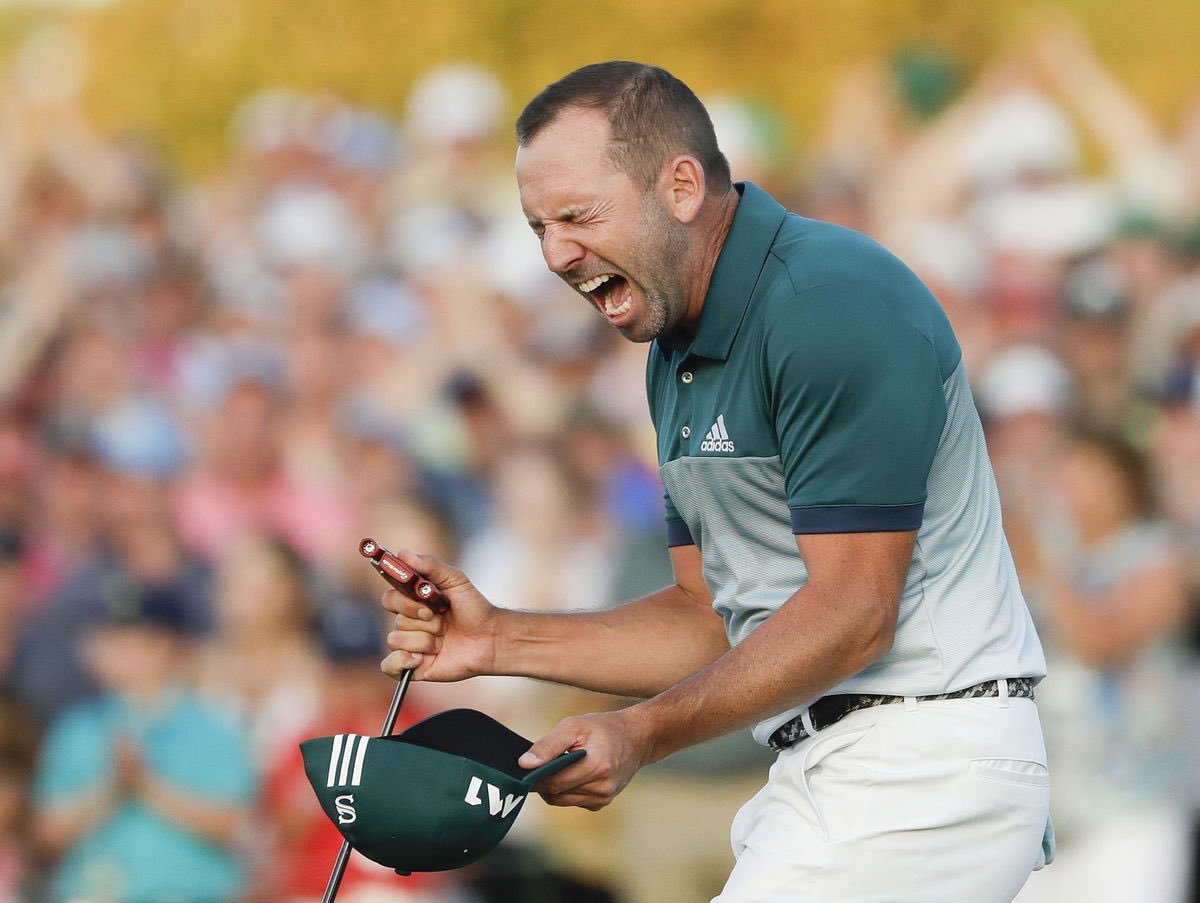Jay Monahan Sold Out PGA Tour? Indirect Darts From European Pro Adds Value to Colleagues’ Concerns

Money or legacy? That’s one debate that has engulfed the golf world since the formation of LIV Golf. While the breakaway league offered a limited field, no-cut events, and enormous purses, the PGA Tour tracked back to its years of legacy and OWGR recognition-backed entry into the four majors. With structural changes coming into the PGA Tour system with the introduction of signature events, elevated purses, and awarding top names with its Player Equity Program, is the Tour really so different from the once-hated LIV Golf?
Well, Andrew ‘Beef’ Johnston surely has his doubts. The famous European Tour pro exposed Jay Monahan and Co. for inculcating the “greed” factor in the sport, despite their previous opposition to the approach. He also tracked this overly-focused money aspect to the doom of the TV rating of the game. But what did Johnston base his sharp criticism on?
Andrew ‘Beef’ Johnston exposes the PGA Tour’s profit-obsessed approach
ADVERTISEMENT
Article continues below this ad
The 35-year-old seemed to be worried about the money-centered approach that the PGA Tour has undertaken in the past couple of years. Why was the sport that was once about legacy suddenly made about money? So that it can set the playing field straight with its rival league. According to the English professional golfer, this approach is “so damaging” for the sport as it takes away the focus from building a legacy to building a bank balance. Such mannerism eventually translates into fan dissatisfaction. The Tour has been facing a downward spiral in terms of viewership, and for Johnston, the altered values of the sport are the crux of this problem.
The highly problematic PIP, according to Beef, only benefits the top layer of rich golfers as they continue to get richer. It has rewarded the golfers, who, with the help of their brand identity, brought focus to the tour as well. However, something more doughy was recently announced: massive bonuses for their loyalty in equity. Hefty amounts worth $100 million for Tiger Woods, $50 million for Rory McIlroy, and $30 million each for Justin Thomas and Jordan Spieth have been rolled out to possibly fill in the money gaps in comparison to the PIF-backed circuit.
The European golfer also proactively criticized Jay Monahan’s unprecedented delay in reaching a merger and the appeasement of sponsors who are feeding heavy sums of money into the system. He indirectly took a hit at the eventual loss of the cut-based traditional approach to the game of golf.
Addressing this issue, Johnston said to Today’s Golfer, “I don’t blame the players – they have no control over the funds. But I’m struggling to see how the PGA Tour’s equity scheme, or the ridiculous Player Impact Programme is any different from LIV paying their players huge sums of money. Even the tournaments are becoming similar. The Signature Events are limited field, no-cut events with these enormous purses. Sound familiar? The PGA Tour claimed they took away the cut to guarantee the big names would be there for the whole tournament, but that’s bullsh*t. How often does Rory miss a cut anyway? It’s all about money and the sponsors, not the fans.”

via Imago
Image Courtesy: IMAGO
Furthermore, it is important to note that, while frowned upon by fans, the slow pace-of-play problem continues to go penalty-less in the golf world. Even top scorers like Nelly Korda have talked about how they wait for the last moment to prepare for their shots, despite their dislike of slow play. This is because, as advocated by Jay Monahan, despite being irritating, slow play is actually beneficial in terms of media. The broadcast has to go on for 6 hours on the final day, which helps the advertiser make their money’s worth and ultimately benefits the Tour.
Monahan even said, “We’re in the entertainment business. We’re on television. Look at the number of times that we’re finishing on time, if not early. And that’s a frustration of mine because we don’t want people turning off CBS or NBC before the competition, before six o’clock,” indicating the profit-centered intentional delay.
ADVERTISEMENT
Article continues below this ad
Interestingly enough, Johnston is not the only pro who has noticed the holes in the system, leading to fans’ disappointment. Other players, including the Northern Irishman and Max Homa, have also come forward to criticize the greed factor being fed into the game.
Rory McIlroy and Max Homa express their concern about golf’s doom due to greed
Rory McIlroy, despite being a key beneficiary of the equity program and earning $ 50 million, has expressed his dismay with the greed that has permeated through the walls of the gentleman’s sport. Tracing back to his experience in the past couple of years, he said ahead of the Zurich Classic, “I think the one thing we’ve learned in golf over the last two years is there’s never enough.”
ADVERTISEMENT
Article continues below this ad
Max Homa was another golfer who attacked the appeasement approach and pointed out how it is influencing fans’ experience. He said, “I think we hit this year-and-a-half- or two-year rut as both golfers and golf leagues that was just about making the players happy, and unfortunately and quite obviously the fans were not benefitted by that.”
The fact that money comes before player performance seems to have bothered this set of golfers, who were the first to speak about this shifting trend against the formerly boosted wholesome nature of the sport and its effect on the Tour’s and the overall game’s TV ratings. But what’s your take on the matter? Let us know in the comments below.
Related
Antalya’da Golf Heyecanı: Turnuva Başladı!
Antalya’nın Belek turizm merkezinde bulunan Antalya Golf Kulüp, Golf Mad Pro-Am Golf Turnu
Türkiye Golf Turu’nda sıralama belli oldu
haberimizvar.net- Sıralama müsabakalarına Ataşehir Golf Kulübü, Alanya Golf Kulübü
Sergio Garcia can never be Ryder Cup captain, thanks to…
Sergio Garcia has returned to the DP World Tour membershp for 2025, with the LIV Golf player rejoining the tour in time for a Ryder Cup year af












